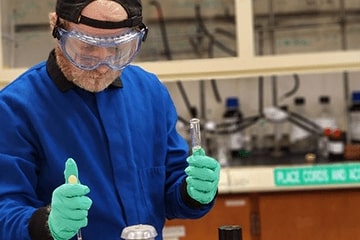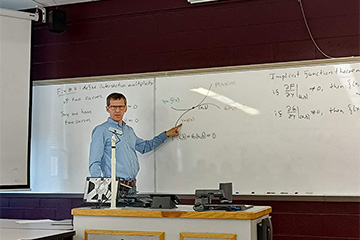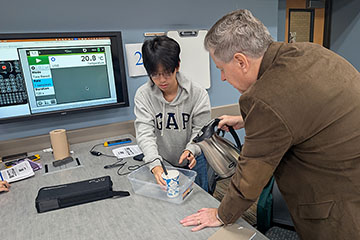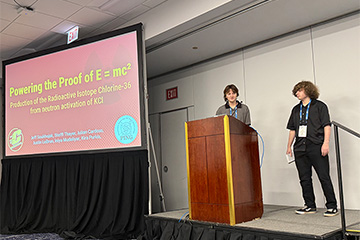Graduate student creates more stable fuel cell membrane
Graduate student, Jacob Lentz, creates a more stable fuel cell membrane to produce more sustainable energy
Jacob Lentz, a Chemistry graduate student, has studied fuel cell membranes to use hydrogen gas effectively, cheaply, and sustainably. A fuel cell is a clean energy device that can generate electric power from reactants such as hydrogen gas and methanol. This process also produces low pollution levels compared to other energy alternatives.
Lentz and his colleagues designed the materials of a membrane to withstand high temperatures and transport protons in way to not use a corrosive acid. Lentz conducted this research by synthesizing different materials and optimizing their structure and properties. Lentz shares that he did not start this project but became involved in 2016. He was taking Organic Chemistry I, taught by Anja Mueller, Ph.D., and asked her about any research opportunities. Mueller told Lentz about her fuel cell membrane project and Lentz joined her research lab. Lentz used the project to write a thesis as part of his undergraduate degree. The project also inspired him to continue working with Mueller to get his master’s degree at CMU.
Lentz shares that he did not start this project but became involved in 2016. He was taking Organic Chemistry I, taught by Anja Mueller, Ph.D., and asked her about any research opportunities. Mueller told Lentz about her fuel cell membrane project and Lentz joined her research lab. Lentz used the project to write a thesis as part of his undergraduate degree. The project also inspired him to continue working with Mueller to get his master’s degree at CMU.
Starting with the research group allowed Lentz to find his passion for chemistry and gave him the opportunity to experience working on a team.
Lentz says, “I’m hoping the data here can be specifically used to create a fuel cell that is more effective and environmentally friendly, but generally hoping it can be used towards research that will help create clean, renewable energy sources."
This story is brought to you by the Office of Research and Graduate Studies.




